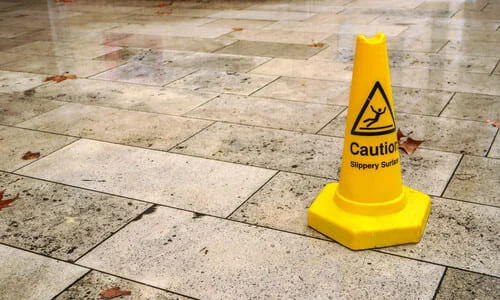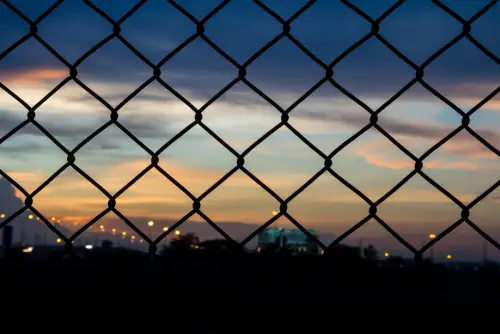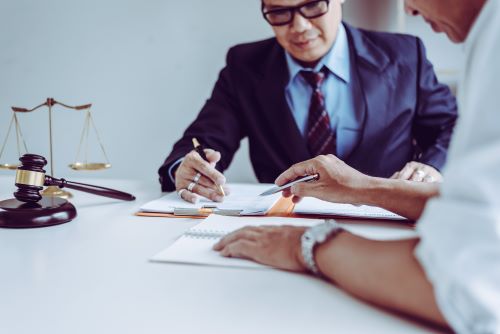
California law mandates that property owners maintain their property in safe conditions, and warn visitors of any hazards. If a property owner breaches this duty of care, and you suffer injuries or damages as a result, you may be entitled to legal recourse.
Moreover, unlike most states, California places a high degree of liability directly on property owners themselves. As a result, tenants are entitled to know — and fight for — their rights in any situation where a property owner has acted with negligence.
So if you find yourself negotiating with a difficult landlord, whose irresponsibility has affected your day-to-day, consider contacting a California premises liability attorney today.
Singh Ahluwalia Attorneys at Law can help you seek the maximum compensation you’re owed for the injuries you have suffered. Schedule a free, no-obligation case review when you call (559) 878-4958 or contact the team online to schedule your appointment today.
How Much Compensation Can I Get for Landlord Negligence?
In California, there is no maximum dollar amount that you can receive from a case against a negligent landlord when it comes to reimbursement for the direct costs of your damages.
That said, some cases may involve caps on punitive damages and damages awarded for pain and suffering.
The amount of compensation that you may be able to recover will depend on the specific circumstances of your case, such as the severity of your injuries, the extent of your damages, and the landlord’s available insurance coverage.
Additionally, in California, there is also no statutory limit on the amount of compensation that can be awarded in a personal injury lawsuit. Instead, the amount of compensation that is awarded is typically determined by a judge or jury based on a variety of factors.
Factors that affect the amount include the nature and extent of the injuries, the impact of the injuries on the victim’s life, and the economic and non-economic damages that have been incurred.
What Kinds of Damages Can I Sue a Negligent Landlord For?
If you can demonstrate that your landlord was negligent in maintaining their property and that this negligence caused your injuries or damages, you may be able to recover compensation for a variety of losses, including:
- Medical expenses: This includes the cost of medical treatment, medication, rehabilitation, and any other related expenses, as well as the projected costs of future care.
- Lost income: If your injuries prevented you from working, you may be able to recover compensation for lost wages or a reduced earning capacity.
- Pain and suffering: You may be able to recover damages for physical pain, emotional distress, and other types of suffering resulting from the incident.
- Property damage: If your personal property was damaged as a result of the incident, you may be able to recover compensation for repair or replacement costs.
What Is a Premises Liability Claim?
A premises liability claim is a type of legal claim filed when an individual is injured or harmed due to a dangerous or defective condition on someone else’s property.
In other words, it is a claim communicating that a property owner or occupier failed to maintain their property in a reasonably safe condition, which resulted in harm to a visitor or guest.
Premises liability claims can come from a variety of situations, including slip and fall accidents, inadequate security, dog bites, and swimming pool accidents, among others.
To be successful in a premises liability claim, the injured party must typically show that the property owner or occupier knew — or should have known — about the dangerous condition and failed to take reasonable steps to address it.
The specific legal obligations of property owners or occupiers will vary depending on the circumstances and the relationship between the parties. For example, a property owner owes a higher duty of care to ‘invitees,’ such as customers or tenants, than they do to trespassers.
However, in all cases, property owners have a duty to maintain their property in a reasonably safe condition and to always warn visitors of any known hazards.
What Is Foreseeable Harm in a Premise Liability Claim?
Foreseeable harm is an important concept in any premises liability claim. In practice, it essentially refers to any harm or injury that a reasonable person would have anticipated as a likely result of any dangerous condition on their property.
In other words, if a property owner (or occupier) should have known that a dangerous condition existed on their property – and that it could cause harm or injury to visitors – then the resulting harm or injury is considered ‘foreseeable.’
In a premises liability claim, the injured party must typically show that the property owner or occupier knew, or should have known, about the dangerous condition and that the resulting harm or injury was, as a result, foreseeable.
For example, if a property owner fails to repair a broken step on a staircase and a visitor falls and injures themselves, the resulting harm would be considered foreseeable if the property owner knew or should have known about the broken step.
What Are California’s Premises Liability Laws?
Under California law, property owners and occupiers have a duty to maintain their property in a reasonably safe condition and to warn visitors of any known hazards. This duty of care applies to both public and private property, including commercial, residential, and public spaces.
In California, the specific duty of care owed by a property owner or occupier depends on the status of the visitor. The law recognizes three types of visitors: invitees, licensees, and trespassers.
- Invitees are individuals who are invited onto the property for a business or commercial purpose, such as customers or tenants. It can also be someone socially invited to a private home or multi-family dwelling. Property owners owe invitees the highest duty of care and must take reasonable steps to ensure that their property is safe and free from hazards.
- Licensees are individuals who are on the property for a non-business or non-commercial purpose, such as individuals entering the property to solicit for their business. Property owners have a duty to warn licensees of any known hazards but do not have a duty to actively make the property safe for them, specifically.
- Trespassers are individuals who enter the property without permission. Property owners have a duty to avoid intentionally injuring trespassers but do not have a duty to make their property safe for them.
California’s premises liability laws are designed to hold property owners accountable for injuries that occur on their property. These laws provide a strong legal framework for injured parties to seek compensation for their injuries and damages.
Who Can Be Held Liable in a California Premises Liability Claim?
In a California premises liability claim, you can hold more than just the landlord accountable for the injury or damages you incurred on someone else’s property.
All of the following individuals (and groups) have a responsibility to keep the place safe, so you may find yourself filing a successful claim against any of the following parties:
- Property Owners: Property owners have a legal duty to maintain their property in a reasonably safe condition and to warn visitors of any known hazards. If the property owner fails to fulfill this duty and a visitor is injured as a result, they may be held liable for the visitor’s injuries and damages.
- Property Managers: Property managers who are responsible for maintaining the property may also be held liable for injuries that occur on the premises.
- Business Owners: Business owners who are tenants at a location but who don’t necessarily own the unit they occupy still have a duty to ensure that their premises are safe for their customers and employees.
In a premises liability claim, liability is determined based on the specific facts of the case and the degree of fault or negligence of each party involved.
If you have been injured due to a dangerous or defective condition on someone else’s property, it’s important to consult with an experienced personal injury attorney who can evaluate your case and determine the parties who may be held liable for your injuries and damages.
How Common Are Premises Liability Claims in California?
Premise liability claims are a very common type of personal injury claim in California, and many of these claims are filed each year across the state.
According to the Judicial Council of California’s 2020 Civil Jury Verdicts in California report, premises liability cases made up approximately 15% of all personal injury cases that went to trial in California in 2020.
So if you’re debating filing a claim against a negligent landlord, property owner, or other party – don’t hesitate to act today.
In California, the statute of limitations for a premises liability claim is generally two years from the date the injury occurred. While that may seem like plenty of time, it’s best to get the ball rolling, especially if your injury left you with expensive medical bills or expenses.
Reach out to Singh Ahluwalia Attorneys today to find out how much your case may be worth. Our team of qualified Fresno personal injury lawyers will be able to review the facts of your case and provide strong legal counsel on how to proceed.
Give us a call at (559) 878-4958 or contact the team online to schedule your free case review appointment today.


